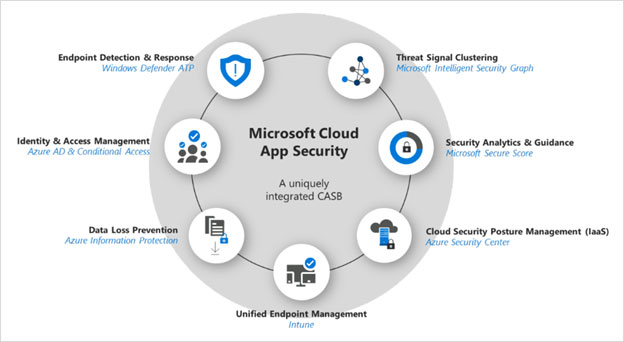 To be efficient and productive, the right people within your organisation need to access the right data and apps at the right time. This means your business requires the best tools to stay safe in the cloud.
To be efficient and productive, the right people within your organisation need to access the right data and apps at the right time. This means your business requires the best tools to stay safe in the cloud.
Exclusively distributed by First Distribution as part of the FD CloudSecure range of products, powered by AVeS Cyber Security.
As a business owner operating in a highly competitive environment, you require a set of tools, systems and platforms that can ensure your organisation is productive, efficient and at the top of its game, all the time. Your entire team needs the ability to access these tools as well — often when they are working remotely.
This is today’s always-on work environment. It supports virtual employees, working offsite and the ability to be productive at any time, from anywhere.
These capabilities are only possible because of strong security measures, protocols and tools that protect your business’s data, your customers’ data and who has access to the various apps and platforms that you use to get things done.
Cloud access security brokers (CASBs) are the cornerstone of this vital security layer that needs to protect every organisation. Microsoft has directed significant energy, resources and innovation towards creating a uniquely integrated CASB.
The role of CASBs in your business
Gartner describes cloud access security brokers (CASBs) as on-premises or cloud-based security policy enforcement points. These are placed between cloud service consumers and cloud service providers. As cloud-based resources are accessed, CASBs combine and interject enterprise security policies.
In other words, CASBs protect you and your organisation each time you access your data, a platform, a SaaS or app through your cloud-based platform, such as Microsoft Azure.
Microsoft has jumped into the Challenger position in Gartner’s 2018 Magic Quadrant for Cloud Access Security Brokers (CASBs). It has also solidified its leadership position in KuppingerCole’s 2018 Leadership Compass in the same product category, backed by consistent customer adoption rates. According to Yinon Costica, director of programme management, Cloud Security Group at Microsoft, this is because of a year of product updates and innovations.
What does this mean for your business, though? CASBs give organisations the ability to embrace the possibilities of their cloud apps and services securely, and they can be crucial in driving a successful cloud security strategy.
While the market for CASBs is still relatively young, Gartner predicts that 60% of large enterprises will be using CASB technologies by 2020, with independent forecasts expecting to reach a total addressable market of US$7.5-billion in the same timeframe.
Microsoft’s growth in this area supports these predictions, having experienced a steep increase in the adoption of Microsoft Cloud App Security across all customer segments, from small and medium enterprises to large corporates.
The Microsoft difference
According to Costica, Microsoft Cloud App Security is uniquely positioned to drive innovation in the CASB space because it integrates with leading security, identity and productivity solutions across Microsoft 365.
Recent additions include Microsoft’s native integration with Windows Defender Advanced Threat Protection and a consistent labelling experience via Azure Information Protection. A consistent labelling experience means that you can define policies in one place and not have to translate them across solutions, clouds or premises.
Among many others, these help organisations gain visibility into their cloud apps and services, provide sophisticated analytics to identify and combat cyberthreats, and control the sharing of sensitive information to support both Microsoft’s native cloud services as well as numerous third-party cloud apps and services, such as Dropbox, Salesforce and others.
Identity and access management
An essential component in Microsoft’s overall CASB solution is Azure Active Directory (AD), Microsoft’s identity and access management solution.
Azure AD is designed to give IT administrators the tools they need to manage users, applications, data and various other aspects of their organisation’s network. It keeps data safe while giving the right users access to the applications and data they need to get their jobs done quickly and efficiently.
As an international leader in the CASB field, Microsoft is continuously working on perfecting its various solutions, how they integrate with other solutions, and how they keep businesses — like yours — safe and operating productively to maintain their competitive edge.
Protect your data today
To protect personal and sensitive information, First Distribution has partnered with AVeS Cyber Security, specialists in cloud security and governance. We’ve found that the first step to protecting a business’s data is understanding where the critical gaps lie.
Find out how you can secure your business against cyber-threats effectively with Azure Active Directory with your free Mitigate business risks and protect your data with Azure Active Directory white paper.
About First Distribution
First Distribution is a value-added distributor of leading global brands, providing complex ICT solutions to the enterprise and SME markets. They have based the First Distribution model on delivering solutions through trusted, established resellers. Their client base has been built up through a history of consistent trustworthy service and nurturing resellers as business partners. For more information, visit First Distribution.
About AVeS
AVeS help organisations in Southern African achieve confidence in their digital information. Following our tried and tested six-step methodology, we holistically assess IT strategies and operations, advise both business and IT on how to align their efforts to business objectives, and implement best-practices in governing and architecting information technology investments with less risk, more built-in efficiency and better adoption across the organisation. For more information, please visit AVeS.
- This promoted content was paid for by the party concerned





